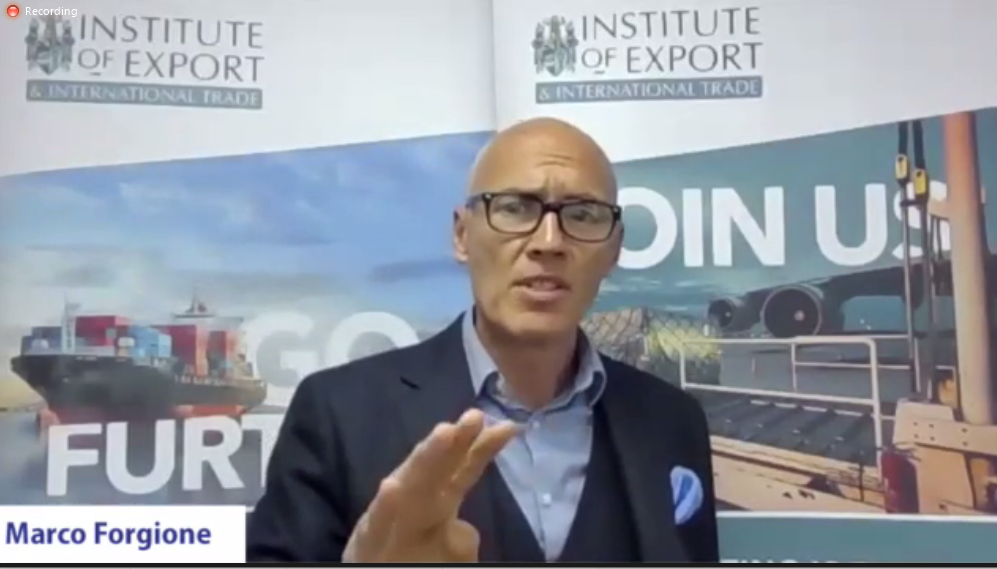
The UK should build on its “historic strength” in services exports and “showcase how a liberal, expansive, flexible approach” can “transform economies”, a panel of global trade experts said yesterday (08 July).
The UK is the second largest exporter of services in the world behind only the US.
Services comprise 47% of the UK’s exports and account for a £110bn trade surplus.
Liberal approach
Speaking on a webinar addressing the future of the services industry, IOE&IT director general Marco Forgione said a “flexible and liberal approach to trade has to be the example for the UK in its regulatory framework and future trade deals”.
The webinar – hosted by the Devonshire House Network and sponsored by accountancy firm BDO – also featured the IOE&IT’s president Lord Green and chairman Terry Scuoler CBE.
The online discussion covered the ‘servicification’ of manufacturing, the importance of the rules-based trading system, the UK’s independent trade policy and the current geopolitical climate.
Kim Hayward, a senior audit partner at BDO, and Susan Caldwell, the director for financial and professional services at the Department for International Trade, were also panellists.
Five steps for growth
Forgione argued that government can deliver further growth for the sector, in partnership with the WTO and through trade agreements, with the following five steps:
- Ensure “mutual recognition of professional qualifications” in all free trade agreements
- Ensure “free access to telecommunications structures”
- “Simplify the approach to business travel and visas”, including for both ‘fly-in, fly-out’ travel and longer-term inter-departmental moves
- Make permanent the current WTO tariff moratorium on digital tax
- "Roll out sector-specific agreements”, such as the US-Australia fintech bridge
Rules-based system
Speakers also stressed the importance of the rules-based trade system, with Caldwell saying government is looking to support the WTO and ensure top-of-class regulatory frameworks in the free trade agreements it is negotiating.
Hayward argued the UK can “leverage off its reputation and historic advantage of having a sophisticated and regulated market”, saying UK legal expertise is “sought after by foreign corporates”.
Scuoler also raised the point that the UK is the only country to have its judiciary overturn its own government, highlighting the centrality of law and democracy in the national fabric.
More to be done
Discussing the support from government for companies looking to export services internationally, Lord Green, a former trade minister, encouraged companies to “think proactively” about the opportunities government provides.
The panellists agreed government has come a long way in enhancing its in-market support through the trade commissioner programme, but there is still room for improvement.
Lord Green also highlighted the role that diaspora communities can play in opening opportunities in international markets for UK businesses. He added that the large network of overseas graduates from UK universities could also open doors overseas.

